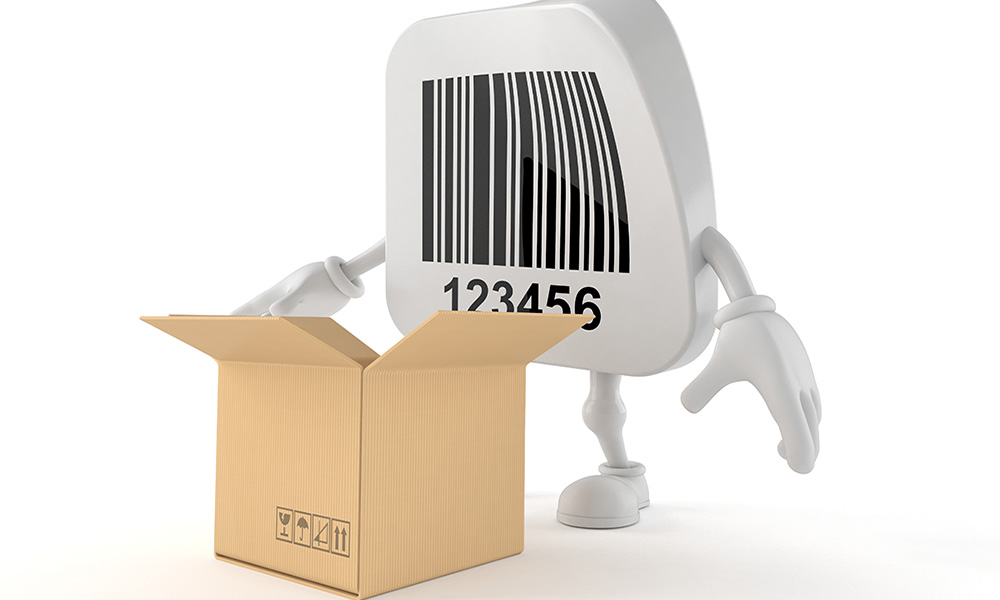You may have a pile of inventory the size of a small horse waiting to be sold in your basement, or you might have hundreds of packages flying through a small warehouse every day. Whatever your situation may be, you likely already have some sort of inventory tracking system in place. While you might be relying solely on your very own special method for tracking your inventory, like your warehouse manager’s incredible memory of where stuff is at all times, will that work at scale?
As your business grows, your inventory tracking should grow up, too. More and more consumers are turning to online retail for their everyday purchases. While this can be a great advantage for e-commerce businesses everywhere, it also presents a unique problem: returns.
Inventory tracking and returns go hand in hand. While a brick and mortar store might simply reshelf or toss the returned item, online returns can be more tricky, and thus harder to keep track of. That’s where Stock Keeping Units, or SKUs, come in. SKUs are identification codes that track a product. The SKU usually includes details about the product such as color, size and other variations.
Here are 4 huge reasons why SKUs are essential for returns:
1. They Help Categorize Products Easily
You should always assign a unique SKU to a product, even if you sell the same product with another sales channel, because it helps for recategorization if that product is returned. During busy post-holiday seasons, the number of returned products increases exponentially. In fact, online retailers can experience 10 to 15 percent return rates. With clothing, that number can be even higher – up to 30 percent! When a product is returned, it often can take hours to categorize, and can be misplaced as a result. This means you might accidentally order more inventory than you need for that category, and disrupt your reorder point as a result. SKUs can help you know how much of a type of product you have at all times, which saves you the money wasted on extra inventory. By measuring inventory levels, SKUs ensure that your business is on the right track no matter what season.
2. Preventing Fraud
While you may think that the items you sell online are always one of a kind, it is easy to make copies and send them back to you! Imagine, for example, that you sell sunglasses, and keep stocking the returned items without really checking them. Those items then recirculate into your regular orders, until one day a distraught customer points out they received a fake. The complaint goes viral, and suddenly all confidence in your business is lost. How does one recover from something like this?
Enter the magic of SKUs. SKUs prevent returns fraud by putting a unique identification code on each product, which is then recognized when that item is sent back to you. If you scan your items before they leave the warehouse and you receive a return, you can easily match that this is the same item that had been sent out before by your store. This prevents fraud by ensuring that someone isn’t sending you a fake product or another older, expired product they bought elsewhere.
3. Keeping Inventory Accurate
The National Retail Federation reported that total annual returns reached $260.5 billion in 2015 — or 8% of total retail sales. With such a high rate of return, it is more important than ever to make sure you’re purchasing what you need, not what you think you need. SKUs are essential to making sure you have the right amount of stock with you at all times. When receiving bulk returns, you often replenish stock that you hadn’t anticipated replenishing. If you aren’t keeping track of the amount of inventory surplus you have, you might spend more than you need to order more of that same inventory. This can compound into a problem if that item starts to not sell well, resulting in stale inventory which drains both money and resources to maintain.
SKUs help not only keep track of how much new inventory you are receiving for each return, but also where that inventory goes in the warehouse, whether it’s damaged or defective, or whether it can be resold. This tracking system makes it much easier to tell whether you have a sellable item on your hands, and can prevent mismatched inventory levels in the future.
4. Help With Customer Service Levels
SKUs work their magic by helping make communication between you, your vendors and your customers smooth and efficient all around. As a retailer, your goal should be to make it easy for customers to return their purchases. Whether you’re a small Etsy store or a shop with hundreds of items being shipped daily, your return process and policy is being judged against giants that do it well, like Amazon. If a purchase is difficult to return, both company and customer satisfaction will suffer. From your customers’ perspective, all returns should be simple and seamless, including things like prepaid return labels and flexible return shipping options. By showing that you’ve put thought into the process, you facilitate loyalty in those customers by making it easy for customers to return unwanted items. After all, years of reliable and on-time order fulfillment may create a loyal customer, but it only takes one botched return to take that away.
Closing Thoughts
It is more important than ever to go above and beyond with customer service. SKUs can help you do this by ensuring that the right product is shipped to the right customer, every time. This makes sure that not only do the orders go out on time, but returns due to mismatched items decrease. Additionally, the accountability of SKUs means that a customer can track their return at any time, and will know that it won’t get lost in the warehouse or that they won’t be paid back for their purchase. This little bit of assurance can go a long way when trying to retain a customer! With SKUs, you can handle your ecommerce returns quickly and effectively, every time.
Guest Blogger – Erhan Musaoglu
 Erhan Musaoglu is the CEO and co-founder of Logiwa Corp, a supply chain management systems company. Erhan has over 20 years of experience in the warehouse management industry, and has used his experience in industrial engineering and consulting to create multiple companies, including Unitec and IFS. In order to share his knowledge with larger crowds, he has lectured at various universities on e-commerce supply chains and warehousing. His expertise and leadership in navigating the enterprise and B2B industry has lead Logiwa to grow exponentially. He can be followed on Twitter at @ErhanMusaoglu or on LinkedIn.
Erhan Musaoglu is the CEO and co-founder of Logiwa Corp, a supply chain management systems company. Erhan has over 20 years of experience in the warehouse management industry, and has used his experience in industrial engineering and consulting to create multiple companies, including Unitec and IFS. In order to share his knowledge with larger crowds, he has lectured at various universities on e-commerce supply chains and warehousing. His expertise and leadership in navigating the enterprise and B2B industry has lead Logiwa to grow exponentially. He can be followed on Twitter at @ErhanMusaoglu or on LinkedIn.
Header Photo – Talaj/shutterstock.com

